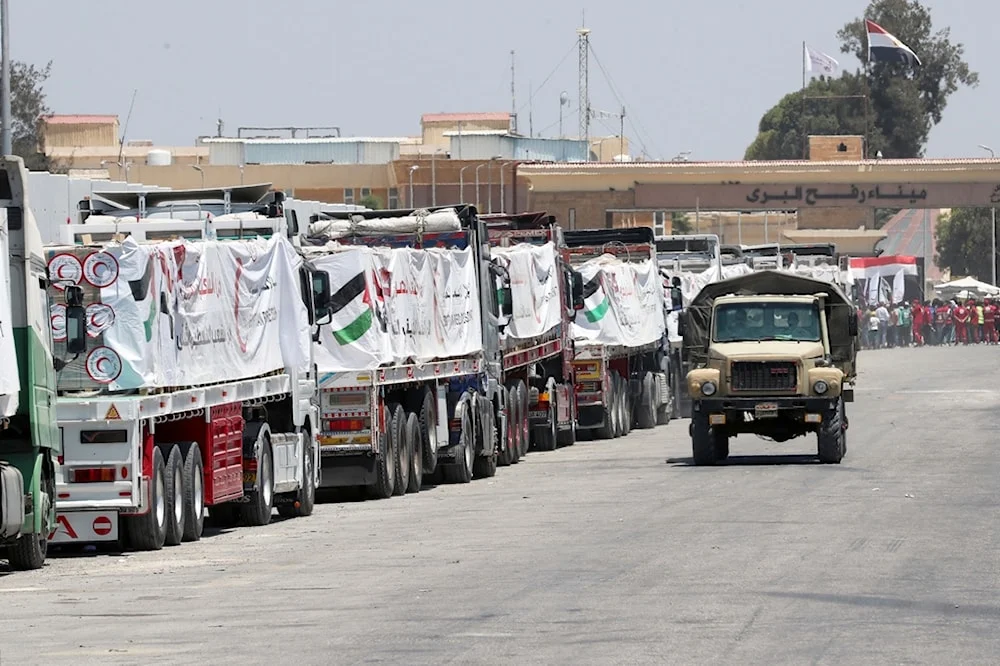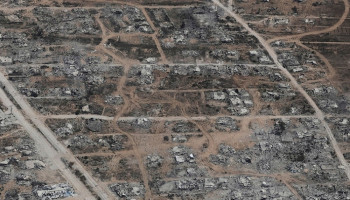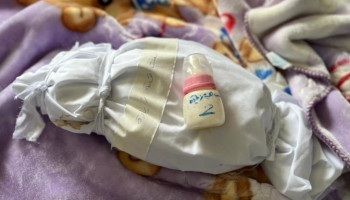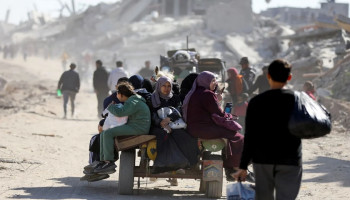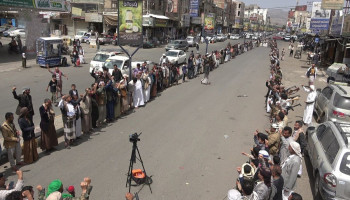recent report from Euractiv, based on a European Commission document, reveals a significant shortfall in the amount of humanitarian aid the Israelis permitted to enter Gaza, falling well below the levels set in a previous agreement with the European Union.
Under the terms of the deal struck in July, around 160 trucks carrying relief supplies were expected to be allowed into Gaza daily. This would amount to a total of 800 trucks over a five-day period, from July 31 to August 4. However, the actual number of trucks that made it into the enclave was much lower.
"Between 31 July and 4 August, the UN, and our partners report that 188 trucks were offloaded at crossing points to Gaza," the European Commission document stated.
An unnamed EU official criticized the gap between the agreement and the delivery, noting that "Israel" had allowed "four times fewer" aid trucks than what had been committed to.
Israeli authorities, however, presented a different version of events. According to the same document cited by Euractiv, "Israel" claimed that 737 trucks entered Gaza during that period. This figure reportedly includes shipments from the Gaza Humanitarian Foundation as well as commercial supplies, raising concerns about what actually qualifies as humanitarian aid under the agreement.
Aid bottleneck persists
Meanwhile, on the ground, the humanitarian situation remains dire. A RIA Novosti journalist at the Rafah border crossing reported long queues of aid trucks waiting for clearance. Several trucks were reportedly turned back after being denied entry by Israeli forces.
Despite these challenges, Egyptian officials claim that aid efforts have intensified. "The flow of humanitarian aid from Egypt to the Gaza Strip had increased in recent days," Khaled Megawer, governor of Egypt’s North Sinai province, told RIA Novosti.
Amal Imam, Executive Director of the Egyptian Red Crescent, shared more specifics at the Rafah crossing, saying that "about 800 trucks carrying 8,000 tonnes of humanitarian aid, including food and medicine, had entered Gaza from Egypt since July 27."
Nevertheless, Gaza’s needs continue to far exceed the supply. Local authorities estimate that a minimum of 600 aid trucks must enter the enclave each day to ensure access to essential goods, including food, medical supplies, and fuel.
Read more: Aid allowed by 'Israel' covers only 14% of Gaza's needs: Media office
Senior EU official accuses 'Israel' of genocide in Gaza
Earlier in the day, a senior member of the European Commission has said the displacement and killing of Palestinians in the Gaza Strip "looks very much like genocide," becoming the first EU official to publicly diverge from the bloc’s official position on the war.
"If it is not genocide, it looks very much like the definition used to express its meaning," said Teresa Ribera, the European Commission’s Executive Vice President, in an interview with Politico published Thursday.
Ribera, a Spanish socialist and the Commission’s second-highest-ranking official, does not hold a foreign policy portfolio, instead overseeing climate and anti-trust matters. Nonetheless, her remarks mark a rare and significant breach from the European Commission’s cautious language regarding the war on Gaza.

